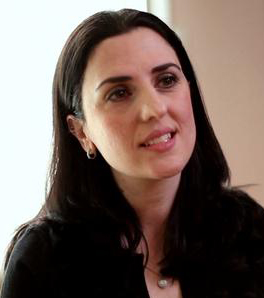 I picked up An Unquenchable Thirst during an especially tumultuous time for me as a writer. I'd been slowly querying a memoir I'd spent the last seven years working on, and I'd found myself unwilling to send out anymore requests. I questioned my motives for writing the book. I agonized over who I might hurt. I imagined the unkind comments people would post about me online, the awkwardness of future family events, the discomfort of living in a world where people knew way too much about me. Had I given away the answers to every possible online security question in my book?
I picked up An Unquenchable Thirst during an especially tumultuous time for me as a writer. I'd been slowly querying a memoir I'd spent the last seven years working on, and I'd found myself unwilling to send out anymore requests. I questioned my motives for writing the book. I agonized over who I might hurt. I imagined the unkind comments people would post about me online, the awkwardness of future family events, the discomfort of living in a world where people knew way too much about me. Had I given away the answers to every possible online security question in my book?
In the midst of all this agonizing, I told myself that if I wasn't using my writing time to work at the very least I should be reading. When I opened An Unquenchable Thirst, I was hoping to forget my own book. I didn't expect to be motivated and inspired. I didn't expect come away changed.
I started writing a memoir about my Muslim-American marriage out of a sense of compulsion. I believed the best way to combat the volatile stereotypes about Islam was through stories, love stories specifically. There is nothing more universal than the quest for love, and our Muslim community needed a few stories that reflected our unique attitudes and customs with regards courtship. As a newlywed, I'd lamented the lack of stories that bore any resemblance to relationships like mine. I wanted to read stories about couples that had a limited history together prior to marriage, couples that struggled to explain how they met their spouse within mainstream culture.
For the sake of my family's privacy, I contemplated fictionalizing my story, but I couldn't bring myself to make the switch. As a reader, memoirs have always gripped me. Holding another human being's truth in hand is something you can't push aside when the book is finished. Memoirs are more than stories; they are a person's life.
Years passed, and I carried on writing. The deeper I got into the writing process, the more troublesome my work became. There was no way to tell the truth about a marriage without talking about sex. Although the intimate details of my life were the last thing I wanted to share on the page, I couldn't tell a complete story without it. Writing those scenes tormented me, but I fought the urge to self-censor. I told myself to get the story down first and worry about the consequences later. Now that later has arrived, I have been terrified. For all my good intentions, I don't know if the story I've written is worth enduring the shame of making my private life public or the risk of hurting those that I love.
But while I was reading Mary Johnson's book, this roiling angst went quiet. I imagined she had wrestled with the same issues, that she had also walked into her story and found herself acknowledging the same truth I had. We are all sexual beings, and trying to tell a story honestly without owning this very human side of ourselves is like trying to write a story where no one ever eats. And, its absence communicates an obeisance to the very taboos that as writers we are trying to so hard to challenge. I felt not only incredibly validated by Mary's courage but also humbled as well. Surely it was a greater risk for a nun to admit to her sexuality than it was for me, a married Muslim woman with three children. As soon as my mind conjured up this comparison, it made me uncomfortable. What was I saying? Why should there be any difference between what one would expect from a nun or a Muslim woman? Are there any human beings exempt from sexual desire? That we are all sexual beings should be a platitude, something we all know.
We are a long way from this kind of acceptance, especially in conservative religious communities. Until then I am grateful for books like An Unquenchable Thirst, books that challenge their readers' assumptions, inspire important conversations, and remind writers like myself why they have to keep sending out queries.
Huda Al-Marashi is an Iraqi-American living in California. Excerpts from her work-in-progress memoir have appeared in the anthologies Love Inshallah: The Secret Love Lives of Muslim American Women, Becoming: What Makes a Woman, In Her Place, and Beyond Belief: The Secret Lives of Women and Extreme Religion. She Huda is the recipient of a 2012 Creative Workforce Fellowship. Learn more at http://hudaalmarashi.com